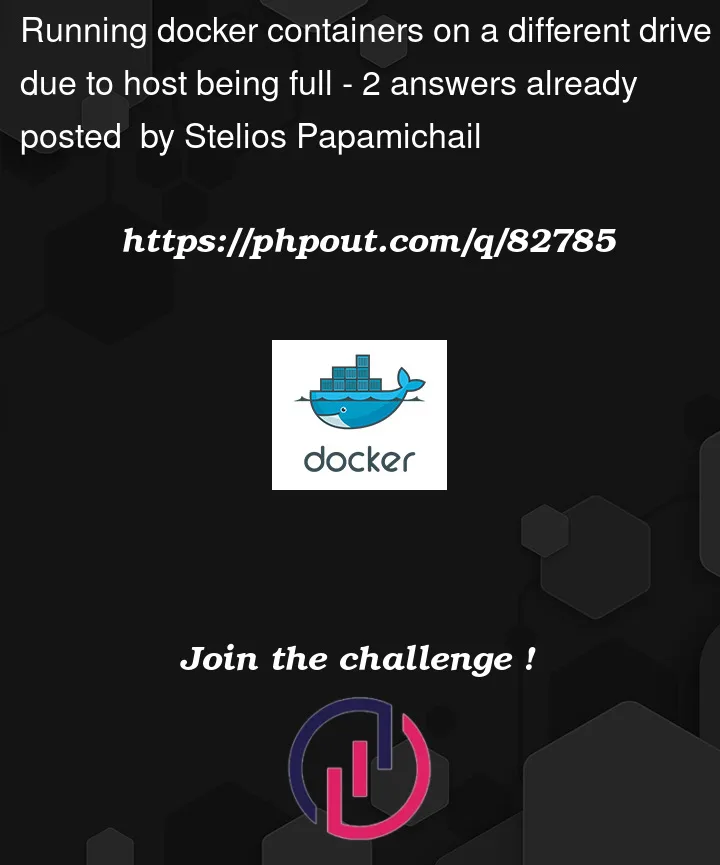I’ve been using portainer to set up various docker containers and stacks. I recently set up a deluge container, which after being halfway through a large download, threw an error stating that there was no more space left on the machine for saving torrent info.
The stack uses two mounted volumes that point to a mounted CIFS drive of 1TB like so:
version: "3.1"
services:
deluge:
image: lscr.io/linuxserver/deluge:latest
container_name: deluge
environment:
- PUID=1001
- PGID=1001
- DELUGE_LOGLEVEL=error #optional
volumes:
- /mnt/sbox1/docker/deluge/config:/config
- /mnt/sbox1/docker/deluge/downloads:/downloads
ports:
- 8112:8112
- 6881:6881
- 6881:6881/udp
restart: unless-stopped
This seemed strange to me since the error was pointing to a file in a /tmp directory that was not present in the host machine, so I run the ls -lh /tmp command inside the container and found it. From what I understand, since docker is installed inside the host’s /var/lib/docker directory, any containers that I set up, will be using the host for any /tmp data and in cases such as this, that won’t suffice. What are my options here? I tried running docker-compose up on the mounted /mnt/sbox1/docker/deluge dir, but since it uses the host’s docker, it fails with the same issue.
Can I somehow specify to docker (through Portainer preferably) that I want a container to use the storage space on the new mounted drive instead of the space on the host? Would something like adding a mapping to the container’s /tmp path suffice?




2
Answers
Thankfully, I managed to fix it, along with @Pierre B.'s help. It seems like the position of the
vers=3.0argument matters (I wasn't aware), and after moving it to the left instead of the end of thefstabentry, it worked and is now mounting as expected during startup. Here's my/etc/fstabentry:After editing it, performing a
rebootormount -afixed everything up and nowdmesg | grep CIFSdoesn't show any errors.Indeed you can setup your
docker-compose.ymlto mount container’s/tmpon your large disk, for example:It looks like you’re using a
docker-compose.ymlfile, in that case I would advise against your container directly in Portainer directly (appart for debugging purposes): any change in yourdocker-compose.ymlwould re-create container with previous volume definition.Appart from mounting a volume, you can:
/var/lib/dockerusing--data-rootflag, but that seems overly complex for your problem (you would have either to re-install Docker or move all data into new directory)/downloads/tmp. But using Docker volume config seems the simpler way in your case, such patterns for mounting/tmpare quite common.EDIT: to answer comment
Indeed, as you said every Docker container’s data is stored under
/var/lib/dockerby default. This will include all data written into your container writable layer unless they’re bind-mounted (volumes will also be created under/var/lib/docker/volumes). In other words, everything in your container/will be somewhere in/var/lib/docker/....Your container probably writes somewhere – like
/tmpand other directories – while downloading, that’s why you see such disk usage. You can try to debug while downloading usingdu -sh /*or such in your container to identify disk usage.